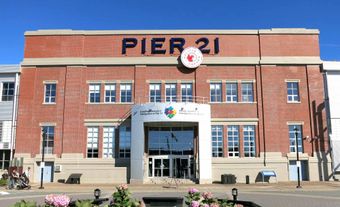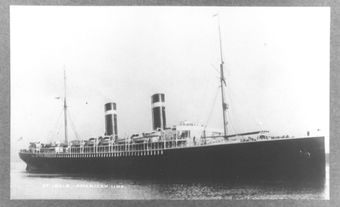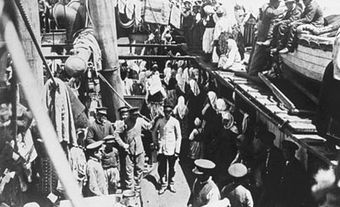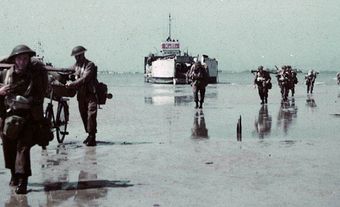Latvia is a small country situated on the eastern shore of the Baltic Sea. It shares borders with Russia, Lithuania, Belarus and Estonia. Established as an independent state after the First World War (WWI), Latvia was occupied by the Soviet Union in 1940, by the Nazis from 1941 to 1944, and then again by the Soviet Union. In 1945, 110 000 Latvians who had fled to western Europe were classified as displaced persons. Of these, 14 911 eventually immigrated to Canada. The 2016 census reported 30, 725 people of Latvian origin in Canada (7040 single and 23, 685 multiple responses).
Migration and Settlement
The first Latvians (mainly farmers) to arrive in Canada were refugees from Tsarist Russia in the 1890s. They settled primarily in Manitoba and Alberta, although during the Great Depression many sought work in eastern Canada. The 1941 Canadian census listed 975 Canadians of Latvian origin, but by 1986 an estimated 12 615 Canadian residents claimed Latvian ancestry.
Latvia unilaterally declared independence in 1990 after the dissolution of the Soviet Union and was recognized as an independent state in 1991. Latvia joined both NATO and the EU in the spring of 2004.
Of the 30, 725 people of Latvian origin in Canada in 2016, a majority resided in Ontario (18, 095 people) particularly in Toronto (9665 people), which has the largest Latvian community in Canada.
A large percentage of the Latvian immigrants who arrived after the Second World War (WWII) were professionals - eg, doctors, engineers and lawyers - and most successfully integrated into Canadian society. Most Latvians reported being Protestants and many belong to the Lutheran Church, although there are Baptists and Roman Catholics as well.
Social Life and Community
Larger Latvian communities have their own congregations and professional and social organizations. The activities of these local groups are co-ordinated by the Latvian National Federation in Canada, headquartered in Toronto. The Latvian community also supports Latvian-language Saturday schools. In the 2016 census, 5710 Canadians reported Latvian as their mother tongue (first language learned), representing less than 0.1 per cent of the Canadian population.
The most spectacular demonstration of the Latvian culture is the song festival, dating from the 19th century. The tradition is also celebrated in North America. The one-week festival includes massed choirs, symphony concerts, recitals, folk dancing, theatre performances and exhibits of fine arts and handicrafts and is held at 2- or 3-year intervals alternating between Toronto and the United States.

 Share on Facebook
Share on Facebook Share on X
Share on X Share by Email
Share by Email Share on Google Classroom
Share on Google Classroom




